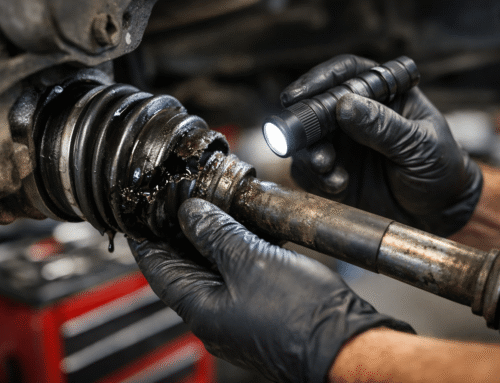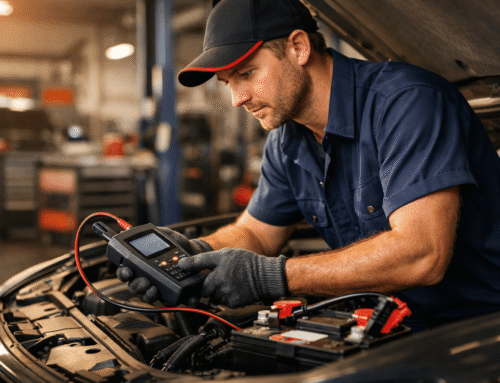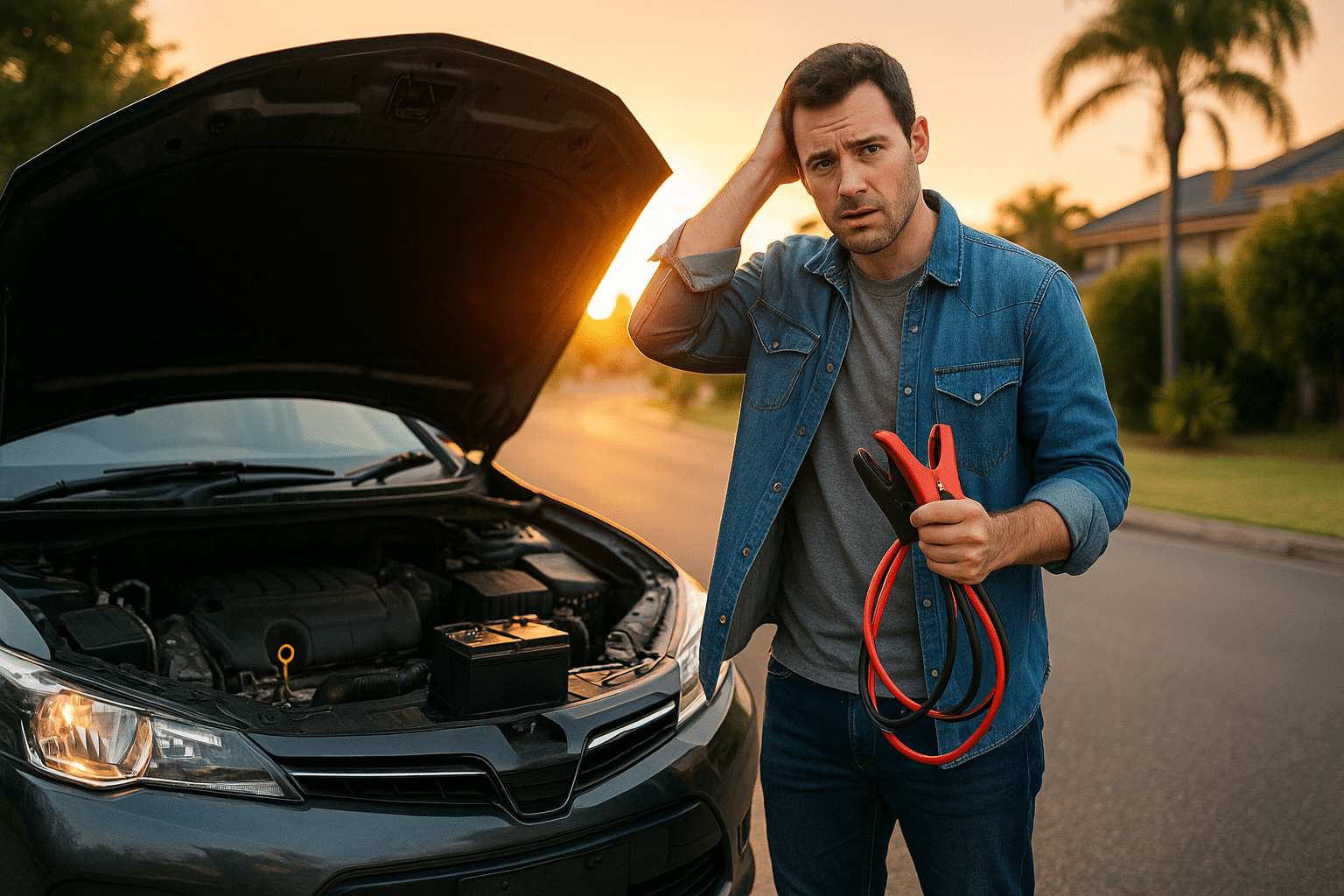
Your car battery keeps going flat because of common issues like age, poor driving habits, parasitic drains, or failing electrical components. Tired of surprise repair bills? If you’ve ever rushed out the door only to find your vehicle won’t start, you’re not alone—90 percent of batteries die prematurely due to preventable causes. The good news is that with the right knowledge, you can extend battery life, avoid unnecessary battery replacement costs, and keep your family safe on the Gold Coast roads.
How to Know If Your Car Battery Is Dying
Spotting the signs early can save you from roadside stress and costly tow fees. Here are the key warning indicators:
A professional battery check will confirm the cold cranking amps (CCA), charging rates, and internal condition—giving you peace of mind before automotive problems start.
Your vehicle relies on a healthy battery for consistent power and reliable starts. Search smart and find the best option for your needs, whether you want heavy duty strength or high performance capability. Compare the wide range of options available, use the right tools to check your battery health, and get the most from your automotive system. Make the most of modern shop resources to keep your electrical system running strong.
Why Your Car Battery Keeps Dying
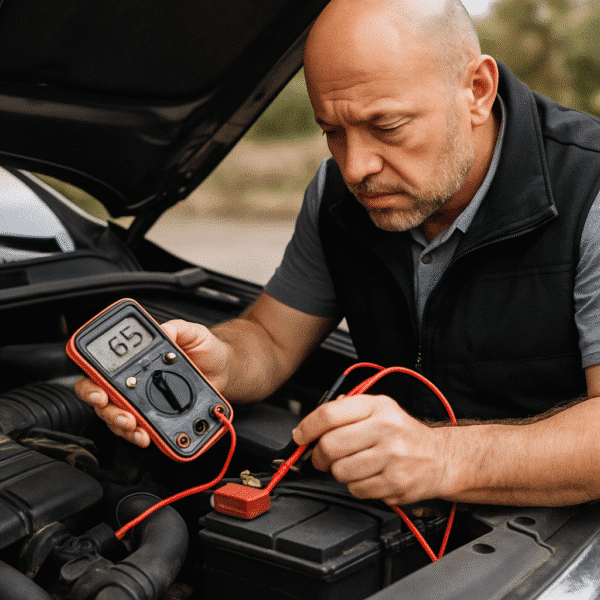
Car batteries are not meant to last a century, but poor maintenance and driving habits can dramatically shorten their lifespan. From short trips to leaving accessories plugged in, even the best high performance battery can fail prematurely. Below are the most common culprits.
Parasitic Battery Drain (The Silent Killer)
Parasitic drain occurs when your vehicle pulls power even after the engine is switched off.
Typical offenders include:
While these drains are often small, over time, they flatten batteries, especially if you do not drive daily. Disconnecting the negative terminal if leaving your vehicle unused for weeks, or booking an electrical automotive service, can prevent silent drains from becoming costly failures.
Keep your vehicle ready for the road by knowing when it’s time to act. Search for expert advice, find trusted guidance, and compare the wide range of battery options available for your vehicle today. Whether you need to get a light-duty solution or something built for heavy use, the right tools and knowledge can help you get the best results. Make the smart automotive choice and use modern shop resources to keep your battery performing well into the next century.
Leaving Lights or Accessories On
One of the most common reasons for flat batteries is leaving headlights on overnight. Add phone chargers, aftermarket stereos, or dash cameras into the mix, and your battery range is cut dramatically. Maintenance-free designs with monitoring systems, or an AGM battery upgrade, can better tolerate accessory loads without shortening battery lifespan.
Faulty or Failing Alternator
Your alternator charges the battery while the engine runs. If it is failing, your car may still start, but won’t stay running long. Signs include:
Testing the alternator output under load confirms whether you need alternator repairs, battery replacement, or both.
A failing alternator can quickly drain your battery and leave you stranded. Take time to search for clear information, find expert recommendations, and compare the wide range of solutions available for your needs. From light-duty to heavy systems, having the right tools and guidance helps you address electrical issues confidently. Modern shop technology gives you a full range of testing options so you can protect your car’s power system.
Old or Worn-Out Battery
Even the best brands—Century, Exide, Optima, Fullriver—have a natural lifespan. Standard lead acid batteries last about three years under Australian conditions, while AGM, EFB, and lithium batteries can stretch further if properly maintained.
As batteries age, plates corrode, capacity reduces, and frequent recharging will not restore full performance.
Battery life doesn’t last forever, and knowing when to upgrade matters. Search battery options (Century, Fullriver, etc.), compare how each performs, and find what suits your driving habits best. For everyday cars or heavy use, solutions are available to deliver stronger performance and longer service life. With the right tools, you can shop smarter and choose a battery crafted for the challenges of the current century.
Short Trips and Infrequent Driving
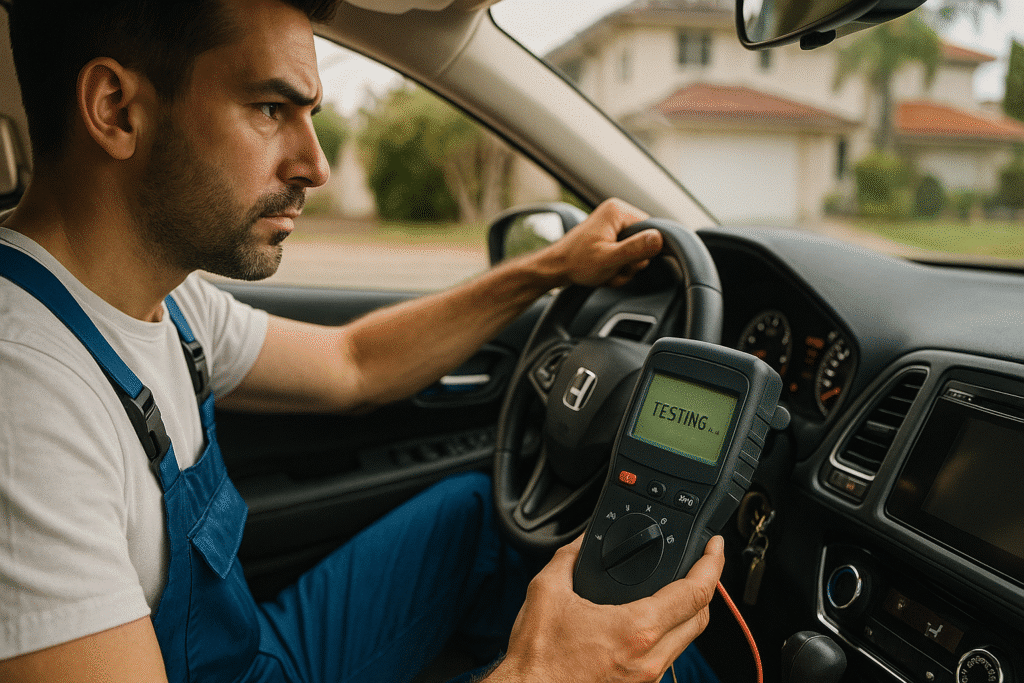
Many families use their vehicle mostly for school runs or weekend shopping. But short trips don’t give the alternator enough time to recharge the battery fully, leaving it weaker week after week.
Key points to remember:
Short trips can slowly drain your battery and reduce reliability. Search for solutions that work for your driving habits, find expert guidance, and compare what’s available for maintaining charge health. Whether you need help with light-duty cars or heavy vehicles, the right tools and smart choices can boost performance. Make time to shop smarter and keep your system ready for whatever this century puts on the road.
How to Fix a Car Battery That Won’t Hold Charge
Here’s a simple three-step process to handle flat batteries:
- 1
Check the basics: Inspect terminals, cables, and accessories for loose or corroded connections.
- 2
Test and recharge: A full recharge with professional chargers can recover borderline batteries.
- 3
Replace if needed: If tests show low CCA or excessive internal resistance, it is time for car battery replacement.
We stock a wide battery range, including Century, Exide, Optima, and Fullriver, so you can compare options for cars, trucks, marine, lawn mowers, solar, and commercial fleets.
When to Replace Your Car Battery (and What It Costs)
Typical battery replacement services on the Gold Coast cost between $181 and $500, depending on battery type and application:
- 1
Small car, lead acid battery: from $181
- 2
Mid-size sedan, AGM battery: $250–$350
- 3
4WD or truck batteries: $350–$500
- 4
Deep cycle and marine batteries: from $250
The cheapest option is not always best. A quality, warranty-backed battery (12–42 months) saves you stress and costs long-term. Compare all available options before making a decision.
When it’s time to replace a battery, price isn’t the only factor to consider. Compare the options that balance value and reliability, and use the right tools to choose a battery that fits your needs. Modern shop resources make a variety of choices available, so you can select the solution that keeps your car running strong well into this century of driving.
How to Stop Your Car Battery From Dying Again
Practical steps can extend battery life and keep you safe:
Battery care is simpler when you know your options. Compare maintenance tips and products to see what works best for your driving habits, and shop for solutions that keep your battery strong. Taking these steps now helps ensure reliable performance through this century of ever-evolving vehicles.
Powering Peace of Mind: Keeping Your Car Battery Reliable on the Gold Coast
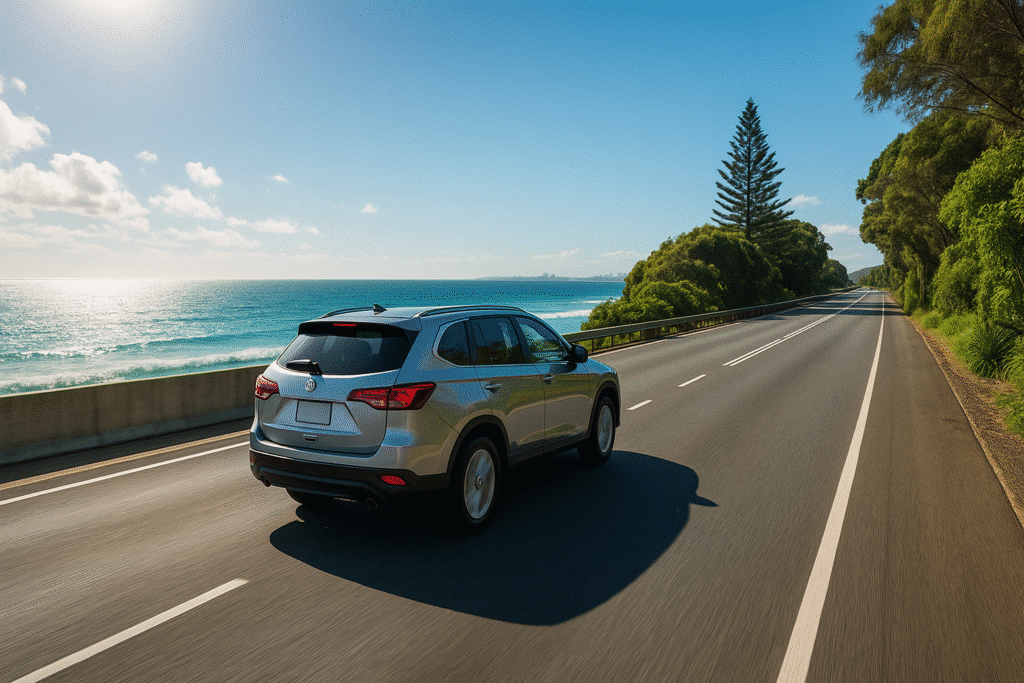
Car battery failure is one of the most common reasons for roadside assistance in Australia, but with preventative care and the right replacement solutions, you can avoid being stranded. Whether you drive a small hatchback, a heavy truck, or a stop-start car with ISS technology, selecting the correct battery type (AGM, EFB, etc.) is critical for safety, reliability, and performance. Make sure to compare your options to make an informed decision.
If your battery is flat, weak, or unreliable, consider a professional battery test or replacement. With the right products, tools, superior installation, and warranty-backed parts, you will restore confidence in your vehicle’s power and performance. For drivers on the Gold Coast, the best solutions are available locally, with quick service, transparent costs, and convenient options like mobile battery replacement or courtesy transport.
Call today to get professional battery replacement services, compare brands (Century, Optima, etc.), and ensure your vehicle stays reliable in all conditions. Limited courtesy-car spots are available, so book your service now and stop worrying about being stranded with a dead battery.

